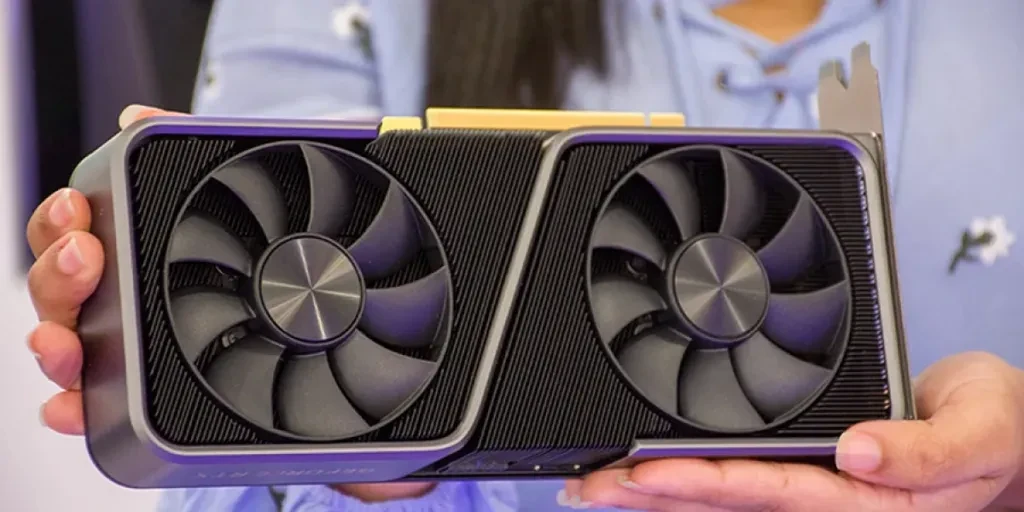No matter whether you work in a data-heavy field or not, the average person nowadays accumulates a lot of data for work and personal use, necessitating a solid means for data backup to keep everything safe and organized. That’s where external storage solutions come in.
While hard disk drive (HDD) enclosures are a common choice among consumers, alternatives like network-attached storage (NAS) also exist and may be more suitable depending on the user’s specific needs.
Here, we’ll explore how external hard disk drives compare to network-attached storage as well as which makes more sense for your business to stock.
Table of Contents
An overview of the HDD enclosure market
HDD enclosures vs. NAS storage: A brief overview
HDD enclosures vs. NAS: The main differences
5 market trends helping to make HDD enclosures popular
Conclusion
An overview of the HDD enclosure market
HDD enclosures are one of the most popular external storage solutions after cloud storage. Experts report that the market’s revenue reached USD 2.23 billion in 2023 and project it will grow at a 3.9% CAGR to USD $6.24 billion by 2031. This steady growth is mainly thanks to the rising demand for expanded storage capacities, portable storage, and data backup solutions.
The increased availability of digital content (multimedia files and high-definition videos) is also driving demand for HDD enclosures. Due to their technological advancements and high disposable income, North America and Europe are the dominant regions for this market.

HDD enclosures vs. NAS storage: A brief overview
Many people choose HDD enclosures for their portability. Their small size means that they can be thrown into a bag and taken anywhere. Nowadays, these drives often come with 2TB capacities or more, allowing the average user to keep a sizable amount of data in a compact, portable format.
However, while HDD enclosures are easy to carry and use, they lack many of the advanced features data professionals require. For example, they can’t be accessed remotely or accommodate advanced configurations using their extra space.
Network-attached storage (NAS), meanwhile, offers more sophisticated features like RAID support, file sharing, and remote access, making it ideal for more complex data needs. The downside? They don’t have the impressive portability of an HDD enclosure.
Below, we’ll delve more into these two storage types and detail which is more suitable for different needs.

HDD enclosures vs. NAS: The main differences
1. Portability
External drive enclosures are more portable than network-attached storage devices. NAS systems are often bulky and boxy (like a desktop computer’s CPU), while HDD enclosures are compact and similar in size to the internal options in laptops. It’s why they are a popular choice for portable external storage.
On the other hand, NAS systems are usually larger and designed to stay in one place. They look like big boxes with rear panels, various connection ports, and front grills (often packed with features). Although designs vary by manufacturer, NAS systems are usually relatively bulky, making them inconvenient to carry around.
2. Accessibility
Both NAS and external hard drives have advantages in terms of accessibility. HDD enclosures can easily connected to PCs via a cable without the need for an internet connection.

In contrast, a NAS system offers much more flexibility. Consumers can access their files from any computer, even remotely via an internet connection. Plus, NAS systems often integrate with cloud services, making the stored data accessible no matter where the user happens to be.
3. Capacity
HDD enclosures and NAS systems offer large storage capacities, often in terabytes. However, HDD enclosures have fixed storage, meaning consumers can’t change or upgrade the capacity; if they need more space, they’ll need to buy more capacity or add another drive.
Contrarily, NAS systems are more flexible. They come with multiple hard drive bays, allowing consumers to add more drives when extra storage is needed. This means they can quickly expand their storage, potentially reaching 100TB or more, which isn’t possible with a single HDD enclosure. Hence, NAS systems provide greater storage capacity and scalability.

4. Target users
An external hard drive enclosure is an excellent choice for consumers looking for portable storage to take anywhere. It’s also an easy way to expand primary storage or keep backups simply by plugging it in to gain quick access to the data within.
On the other hand, NAS systems offer many more features (like RAID support), making them the more reliable choice for businesses seeking expanded data services. This storage option also offers collaborative tools and advanced security features, making it better for consumers looking for expandable, secure storage for their enterprise or home storage needs.

5. Performance
NAS systems and enclosures can use hard disk drives (HDDs) or solid-state drives (SSDs). SSDs are generally faster than HDDs, so compared to HDD-based NAS systems, will likely have better speeds.
However, even if both storage options use SSDs, the enclosure might offer faster speeds thanks to its simpler plug-and-play design. For example, high-efficiency NAS systems can reach speeds up to 110 MBps, while external hard drives can hit 200 MBps or more, depending on their USB interface.
5 market trends helping to make HDD enclosures popular
1. Increased demand for high-capacity solutions
As the demand for digital content grows, so does the need for high-capacity storage solutions. To keep up with growing storage requirements, more people are looking for external enclosures that can hold large amounts of data.
2. Focus on data security features
Consumers are more focused on data security than ever before. That’s why external hard drive case manufacturers add advanced features like password protection, encryption, and biometric authentication to help users keep their data safe and secure.

3. Customization and personalization
Personalization is another big trend in recent years, and HDD enclosures are no exception. For this reason, consumers are increasingly drawn to customizable options that offer various colors, materials, and designs, allowing them to choose options that match their style and preferences.
4. Adoption of USB-C and Thunderbolt interfaces
HDD enclosures have adopted power adapters like USB Type-C and Thunderbolt interfaces to cater to the rising demand for faster data transfer and universal connectivity. These technologies offer quicker data access and a smoother user experience.
5. Growing demand for rugged and waterproof enclosures
Consumers involved in outdoor, industrial, or in-the-field jobs demand rugged, waterproof HDD enclosures that can handle challenging working environments. Some enclosures are therefore designed to endure rough conditions and knocks.
Conclusion
Most consumers prefer HDD enclosures to NAS devices for several reasons: They are simpler, more portable, and faster in terms of storing and accessing data, making them the go-to for most workers on the go. They’re also ideal for places with poor internet connections, meaning consumers won’t be locked out of their backed-up files.
On the other hand, the less portable nature of NAS means that they are likely to remain in the user’s home or office and are likely to attract consumers looking for long-term storage. Despite these differences, retailers can consider bundling them with HDD enclosures as a backup option, catering to as many buyers as possible.




